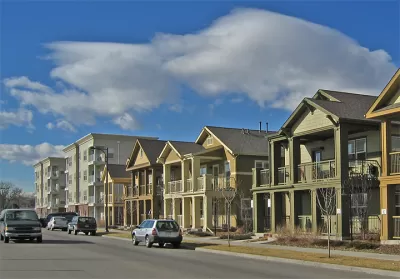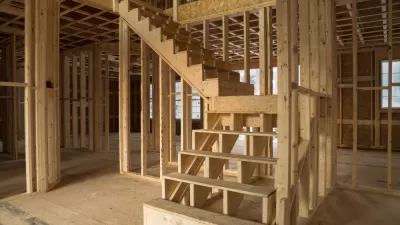Hundreds of homes built under Denver's affordable housing program were sold to buyers who didn't qualify for them. Now, the city is trying to clean up the mess.

Denver is attempting to find a solution after the revelation that about 300 homes built for low-income residents were sold to buyers who did not qualify for affordable housing. Now, city officials have proposed a compromise they hope will eventually recoup the affordable units without kicking people out of their homes. Andrew Kenney reports in the Post:
The new deal is simple: Affected homeowners would be allowed to keep their properties for as long as they want, even if they broke the income limits. But when they sell the houses, they would have to obey the program's strict pricing limits ... When they eventually move, the income restrictions on their properties would resume, staying in place for however many years the ineligible homeowner chose to stay in the home.
The pathway also applies to people who are breaking other rules, including illegally renting out their homes.
Officials claim the root of these mistaken transactions is an error at the state level resulting in local affordability restrictions not being presented clearly during sales. But attorneys for the homeowners accuse the city of negligence in administering the affordable housing program over the last 15 years.
FULL STORY: Denver offers a fix for affordable housing mess, but dozens of homeowners could take a hit

Alabama: Trump Terminates Settlements for Black Communities Harmed By Raw Sewage
Trump deemed the landmark civil rights agreement “illegal DEI and environmental justice policy.”

Planetizen Federal Action Tracker
A weekly monitor of how Trump’s orders and actions are impacting planners and planning in America.

The 120 Year Old Tiny Home Villages That Sheltered San Francisco’s Earthquake Refugees
More than a century ago, San Francisco mobilized to house thousands of residents displaced by the 1906 earthquake. Could their strategy offer a model for the present?

In Both Crashes and Crime, Public Transportation is Far Safer than Driving
Contrary to popular assumptions, public transportation has far lower crash and crime rates than automobile travel. For safer communities, improve and encourage transit travel.

Report: Zoning Reforms Should Complement Nashville’s Ambitious Transit Plan
Without reform, restrictive zoning codes will limit the impact of the city’s planned transit expansion and could exclude some of the residents who depend on transit the most.

Judge Orders Release of Frozen IRA, IIJA Funding
The decision is a victory for environmental groups who charged that freezing funds for critical infrastructure and disaster response programs caused “real and irreparable harm” to communities.
Urban Design for Planners 1: Software Tools
This six-course series explores essential urban design concepts using open source software and equips planners with the tools they need to participate fully in the urban design process.
Planning for Universal Design
Learn the tools for implementing Universal Design in planning regulations.
Clanton & Associates, Inc.
Jessamine County Fiscal Court
Institute for Housing and Urban Development Studies (IHS)
City of Grandview
Harvard GSD Executive Education
Toledo-Lucas County Plan Commissions
Salt Lake City
NYU Wagner Graduate School of Public Service





























